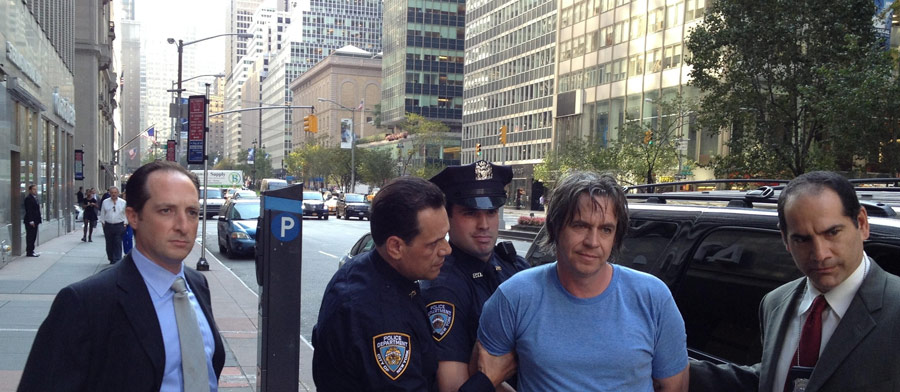AUCKLAND, Today: “Dear Ed,” writes Kiwi ad savant Martin Brown. “I made a little podcast this week which seemed well-received, so I turned it into a self-contained article.”
Here it is, in full …
“Music is an often under-appreciated and certainly undervalued part of the film, TV and content-making process.
The right music can be 50% of the emotional power of a piece of film — and there are some pretty grim soundtracks on much social content. But that’s a subject for another piece. We have an economy to keep going.
I’ve used a lot of music during my so-called advertising career, including some pretty big international songs, the rights for which we often paid moonbeams.
And sometimes using an international song is the right thing for the job, creatively.
But using international music suppliers — particularly production libraries — should perhaps no longer be the default option, going forward.
In recent years I have made a point, whenever appropriate, of recommending and commissioning or licensing New Zealand music for my advertising projects — on big brand campaigns, but particularly on smaller ads and content pieces, online videos and other content.
I do this because the quality is world-class, of course, but also because spending music budgets locally is actually quite a good thing.
Supporting artists
Marketing clients are really receptive to supporting local artists when it’s put to them that’s what they’re doing — supporting local artists.
They often haven’t considered this before. It gives them a nice, warm, happy feeling of goodness. Something they don’t always get in their day jobs.
And they’re often pleasantly surprised to find it’s possible to have an original piece of NZ music on their job for not much more than the cost of a generic overseas library track.
“These local artists will be grateful for the licence fee, even if it’s relatively small. A few hundred dollars is better than no hundred dollars.”
Then there’s often the additional upside for them of having another nice narrative for the PR people to latch on to when they’re spinning out the campaign.
Some brands are more into this than others. Air New Zealand often picks up local music. Spark as well. Farmers, KFC, Ford too. Kiwibank uses Kiwi music a bit. Vogel’s, obviously.
Hyundai and Isuzu have made a point of supporting local artists when I’ve been working on their stuff, and there are many others — smart brands and businesses are happy to use NZ music because they see it makes cultural and economic sense.
License local
Now’s a great time to be thinking about provenance, as we go through this weird hiatus and enter what could be quite a tough period for lots of creative New Zealanders; for everyone really.
If you are an advertising person, a content maker of any sort, a brand manager or a business owner it would be great if you think a bit more carefully about the music you use, and where it comes from, and why that matters.
There are hundreds of NZ songwriters, composers and musicians who would be very happy if you used their work rather than clicking a payment off to some overseas music assembly line owner, or a major international label that’s probably doing OK.
These local artists will be grateful for the licence fee, of course, even if it’s relatively small. A few hundred dollars is better than no hundred dollars.
But mostly they’re even happier to have their music being heard, on your project.
Believe me, there’s nothing better than getting to call up a songwriter or screen composer to tell them they’ve just landed a commercial sync on a TV ad or an online video. The buzz is palpable.
Broadcast royalties
Now here’s a thing … something most creatives don’t know: When locally created music gets placed on a TV ad, it is registered with APRA/AMCOS as a ‘jingle’.
Terrible term, yes, but that’s what the royalty collection industry calls it. Even a commercially released track, in this context, is a jingle. And every track these days has a unique digital fingerprint.
“Clients are really receptive to supporting local artists – they often haven’t considered this before. It gives them a warm feeling of goodness. Something they don’t always get in their day jobs.”
What that means for the composer is that they get a broadcast royalty every time the ad is played on TV. If your TV spot is going into another market, say Australia, it earns a royalty there, too.
This broadcast royalty doesn’t cost you any money. It doesn’t cost your client any money. It comes from a fee paid by the broadcasters themselves for airing music copyrights.
And the more you use Kiwi music, the more of that royalty money stays in NZ — to be spent in the local economy( on the products and services your client produces).
But wait… there’s more.
YouTube royalties
If the local musician supplying your music owns or controls their own copyrights — masters and song — and your ad or content goes onto YouTube, then they can also earn an income stream from YouTube; rights-tracking software recognises the soundtrack and a royalty is earned on every view your content gets.
Now that is, for all intents and purposes, export income — money paid by a US company to a NZ artist, all because you decided to use a local piece of music on your YouTube channel.
Share the love
Production budgets these days these days aren’t what they used to be, and music for some reason is usually way down the list of priorities on the average producer’s spreadsheet. It’s often underquoted. It’s the first production-quality to be compromised, as well. By the time everything shot and edited, and re-edited and posted — the music budget has usually reduced even further.
I get that, it’s just the way things are. But on behalf of local musicians and music producers, please think a little more holistically about the music element of your content — where it’s coming from, and why that matters.
And wherever possible, please don’t default using offshore online libraries. They’re not even great value. License local when you can. Look to Kiwi artists, songwriters and screen composers first.
And share it around.
Martin Brown is an Auckland advertising writer, and creative partner at Songbroker Music Publishing.
Share this Post



